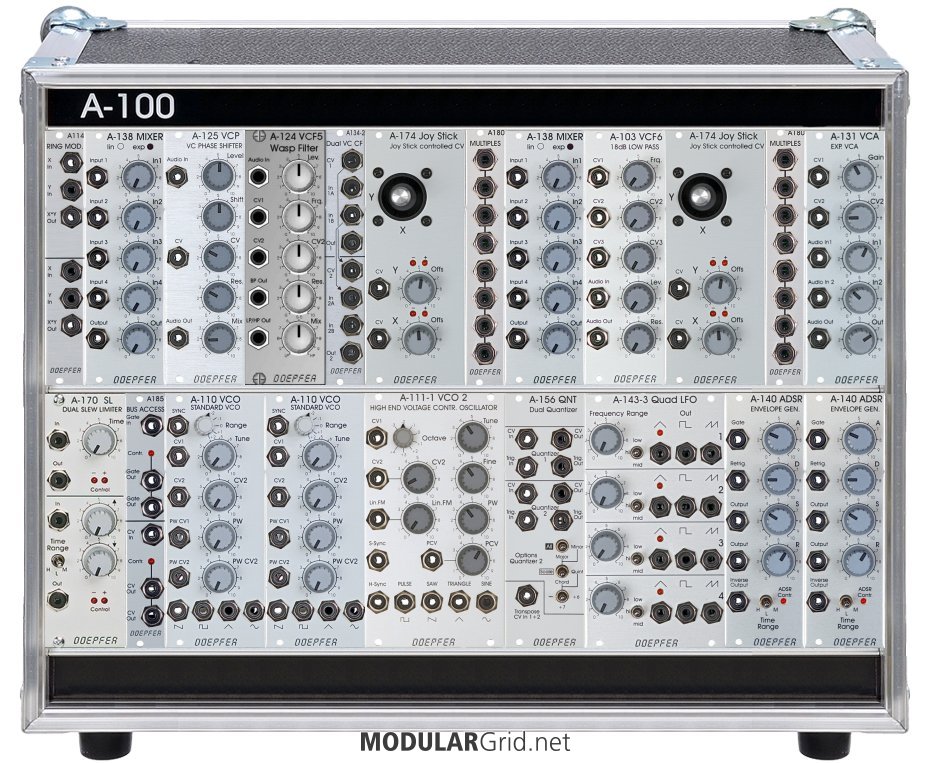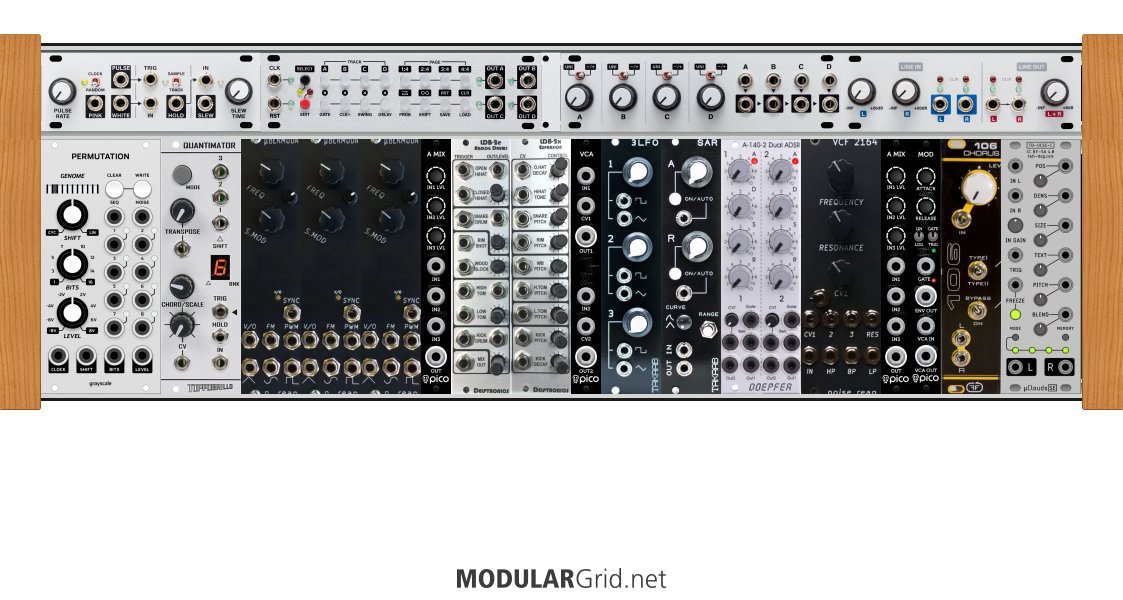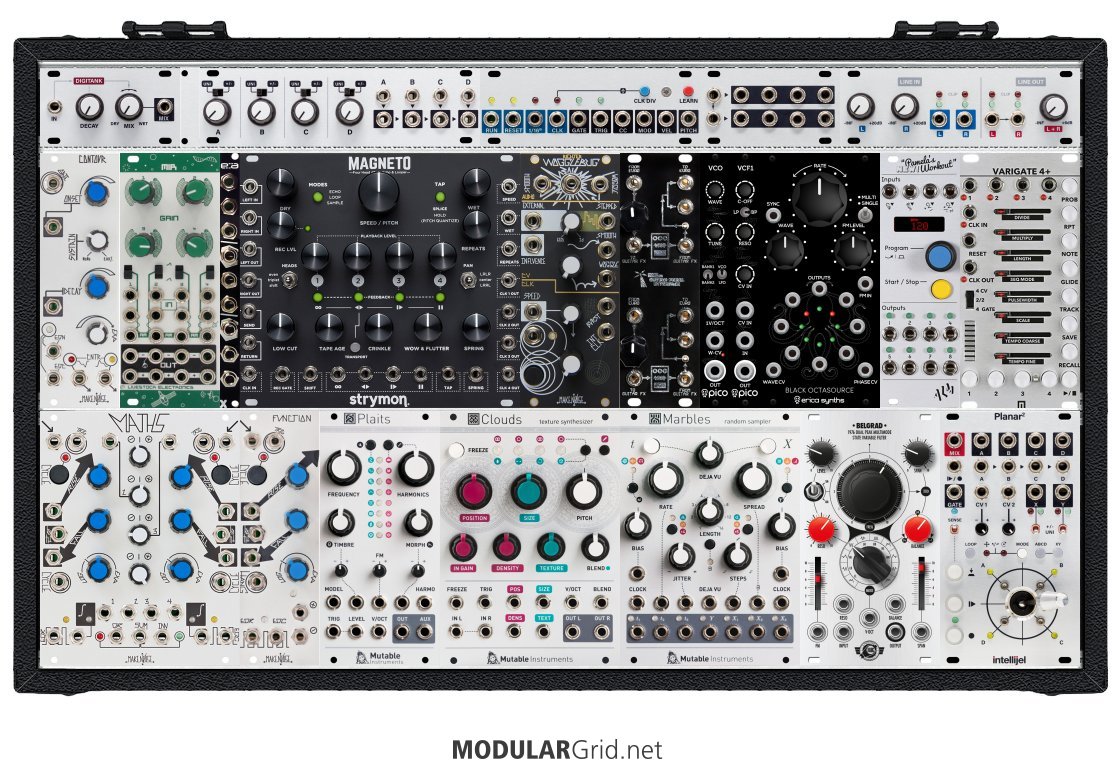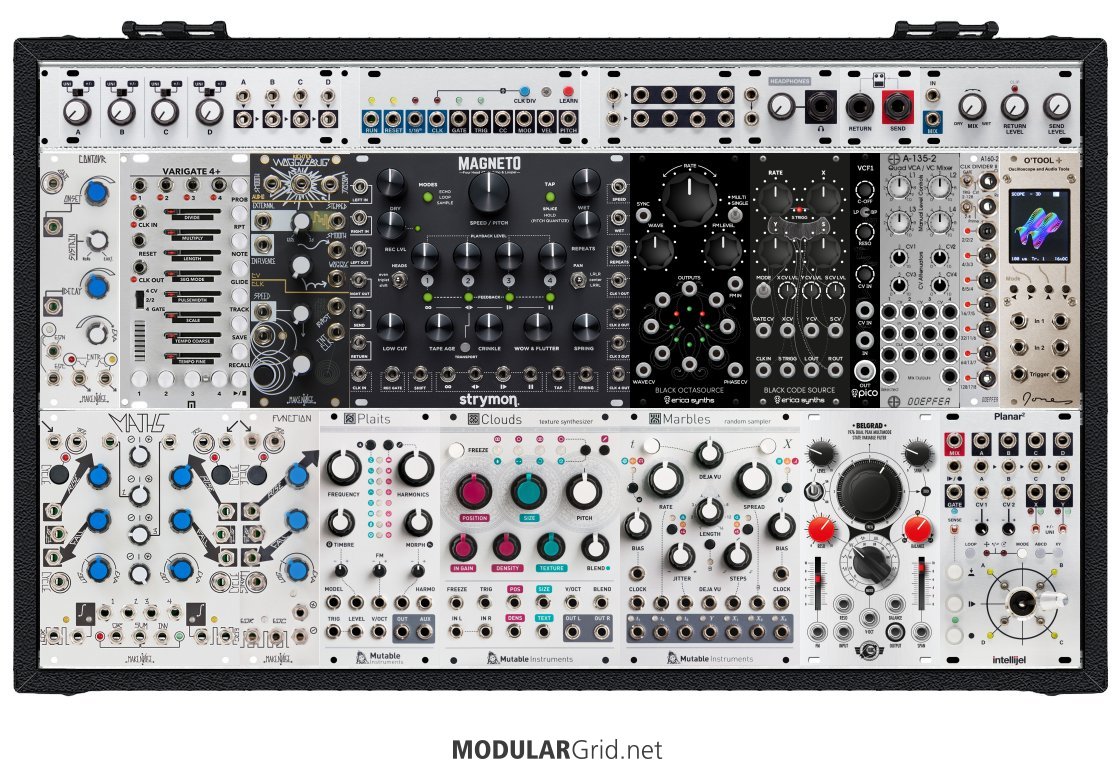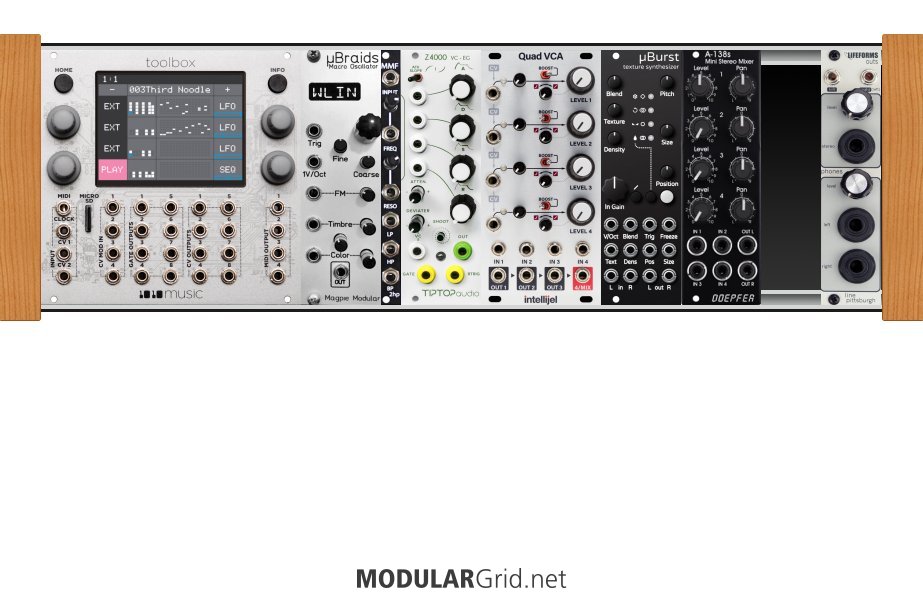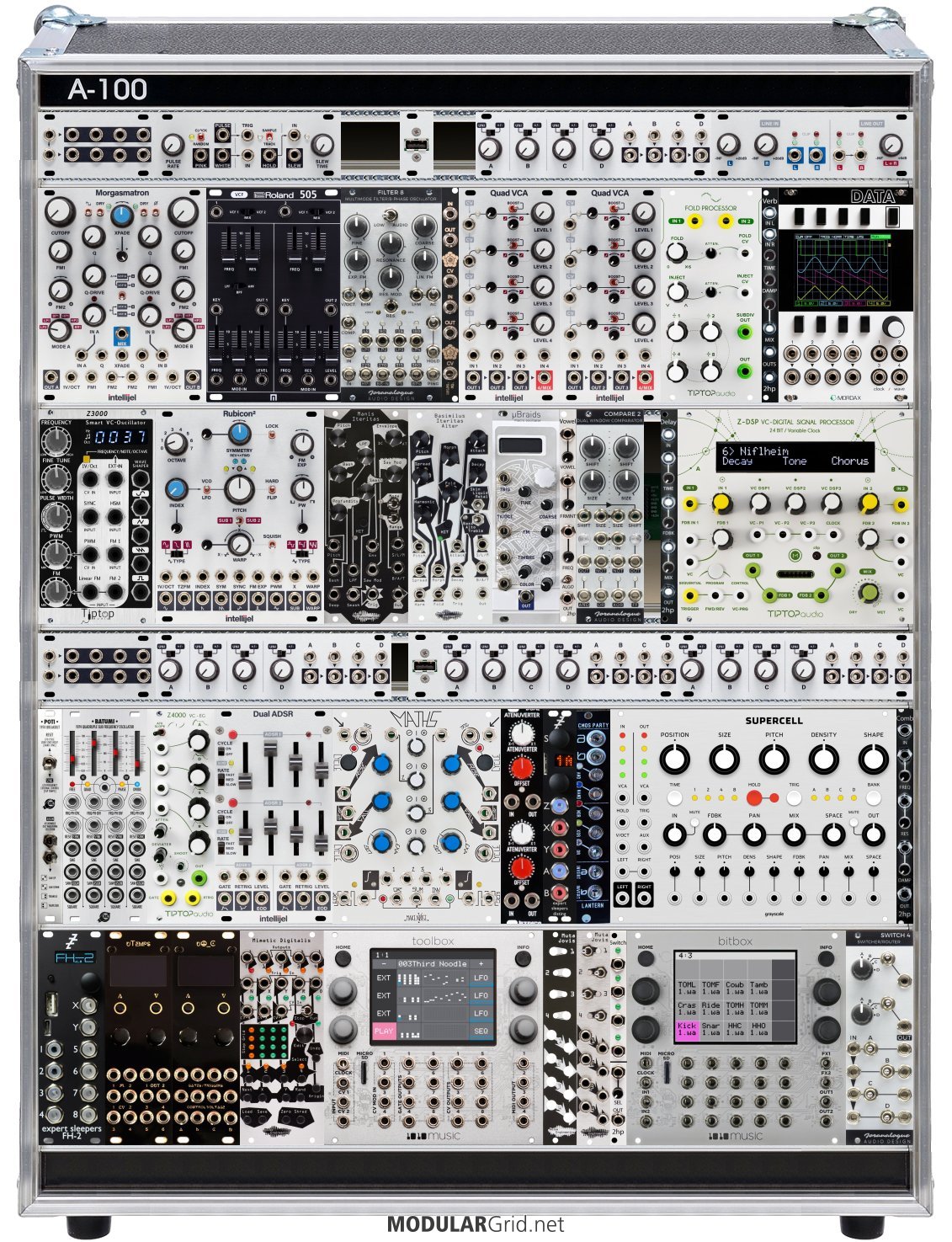Really thank you, Lugia: nothing but your response about Pam and her orchestration skills is crystal clear. Great for the 808! I am bad in Midi connections: no personal practice. I did not think it was possible to use it as a master clock. Awesome !
With ModularGrig: more than two months of daily searches, 5 to 8 hours per day (!), After fifty "final" configurations of rigs, only the top of the iceberg is visible (the last piece of ice while top of the pic!). I must also deepen sequencing compared to randomness. The Euclidian will change me from my Korg SQ 10 (it is absolutely necessary that I find where I put it, and at the same time the Korg tape echo that accompanied him).
My first synth, in 1977 was an MS 20. Then the MS 50. Sold to buy the Odyssey. This is where I lost the opportunity to lose myself in the world of modular. My absolute dream was the 2600 I had heard live in Brussels. But budget inaccessible! So, no more patches. Student's work after work, and others, the all new Yamaha DX7 came to complete. As you said in an exchange with someone: horrible programming of the 80s! First polyphonic at home, first internal memories. But, aargh, where are all the knobs, the direct commands, the interactivity? In addition to subtractive synthesis, the FM was another real discovery. Operators, carriers: really fun, and a typical sound (although ..). I still like it so much. Many years without synths followed. Nine years ago, an Access Virus came to complete this small world. The possibilities of modulations are enormous. It is a very open, playful instrument that leaves a large field for creativity. Despite all the knobs, I find that there is not enough interactivity for quick changes. Or, work with the control software. But blah, only one mouse = only one click at a time.
The modular meets everything and more. Simple and terrrrrible question of choice and budget ...
Visualize the waves: I understand very well and totally agree with your answer. In music, no ear, no guide. No sensitivity, no way out. To hear the sound and to see the wave's evolutions, to morph, to vibrate, sometimes goes beyond the "toy". We say to ourselves: hey, I like this sound, but now I just see something that makes me understand why it starts to vibrate like that. Fun and informative.
Hearing the mixes of evolutive waves and syncopated rhythms (is that the right word?) in the beginning of Radio Activity, at 16, that I wondered what a great instrument generated such incredible sounds. ALL come from THIS piece! Two weeks ago, I was reading one of your threads with someone (a fictitious medicine ;) ) who was also starting with the modular. Long and rich exchanges. You have awakened this person. And with your personal background, let me: wow !! (I read and read it again).
Ok, I go to order modules (aaargh, my savings ..!). But what sound pleasures to come!
Thank you for everything, Lugia!

